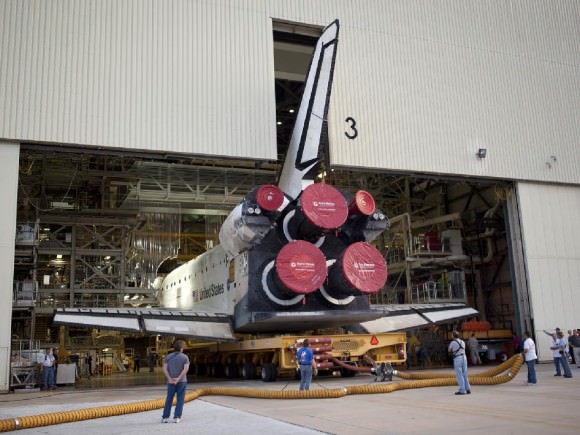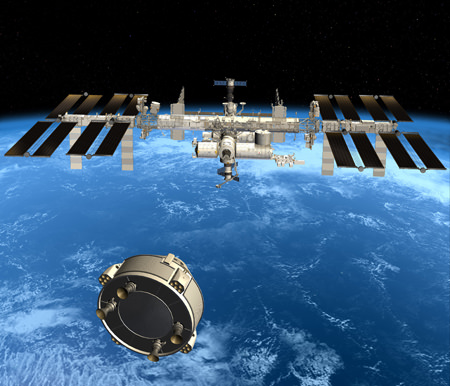[/caption]
CAPE CANAVERAL, Fla – NASA hosted an event on Monday, Oct. 31, at 10 a.m. EDT at Kennedy Space Center’s Orbiter Processing Facility-3 (OPF-3) to announce a new partnership between NASA, Space Florida and Boeing. Space Florida in turn will lease OPF-3 to Boeing. Under the terms of this arrangement, Boeing will use OPF-3 to manufacture and test Boeing’s “space taxi” the CST-100.
Boeing will use OPF-3 as the firm’s commercial crew program office. The OPF, essentially a hangar, will be converted to construct Boeing’s CST-100 space capsule, which is currently being developed to deliver astronauts to low-Earth-orbit (LEO).
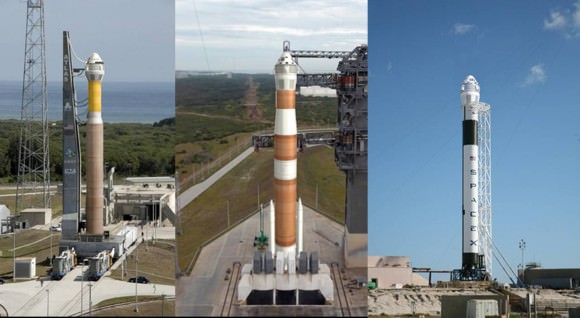
This new partnership was developed following a Notice of Availability that the space agency issued at the beginning of this year. The notice was used to identify interest from industry for space processing and support facilities at Kennedy. With NASA’s fleet of orbiters being decommissioned, NASA was seeking ways to effectively use its existing facilities.
It is hoped that this, and similar partnerships will help create jobs in the region as well as to help the U.S. regain leadership in the global space economy.
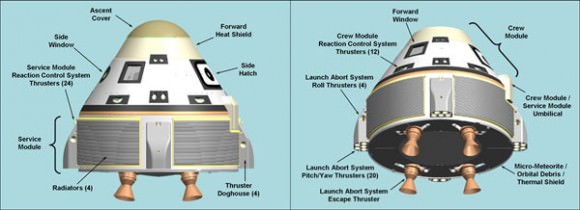
The CST-100 is currently proposed as a reusable spacecraft that is comprised of two parts – a crew module and service module. It is designed to house up to seven astronauts, but it can also be used to ferry both people and cargo to orbit.
With the space shuttle fleet retired, NASA is completely reliant on Russia for access to the International Space Station. Russia charges the space agency about $63 million a seat on its Soyuz spacecraft.
“Only Congress can determine when we will stop the investment of our nation’s tax dollars into the purchase of continued space transportation services from the Russians – and invest instead in the U.S. work force and commercial industry capabilities,” said Space Florida’s President Frank DiBello.
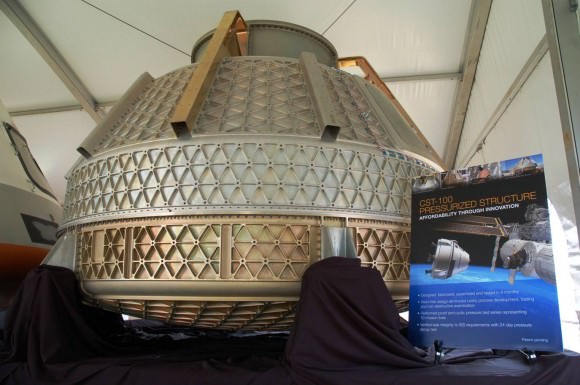
NASA has worked to keep the public apprised about its efforts to open its doors to private space companies. The space agency held press conferences to announce both the Space Act Agreement (SAA) that NASA had entered into with Alliant Techsystems (ATK) and EADS Astrium concerning the Liberty launch vehicle, as well as the release of the design of the Space Launch System (SLS) heavy-lift rocket (which was announced on the following day).
“Thanks so much John and John, I love what you have done with the place!” said NASA Deputy Administrator Lori Garver referring to OPF-3.
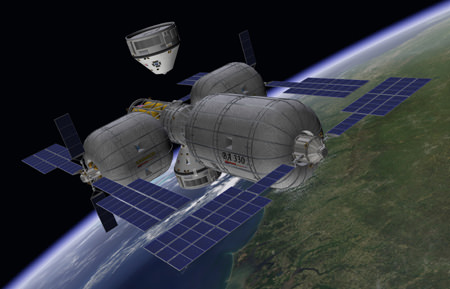
Space Florida is the organization that works to maintain and cultivate the aerospace industry within the State of Florida. The purpose of NASA’s Commercial Crew Program is to develop U.S. commercial crew space flight capabilities. It is hoped that they will one day allow the U.S. to achieve reliable, safe and cheap access not to just the space station – but other destinations in LEO as well.
“If we’re going to find a way to fund exploration beyond the vicinity of Earth, particularly in today’s fiscally-constrained environment – we’ve got to find a way to do the job of transporting crew to the International Space Station in a more affordable manner,” said Boeing’s John Elbon. “That’s one of the primary purposes of the commercial crew program – to provide affordable access to low-Earth-orbit so that we can use the International Space Station as the great laboratory that it is.”
